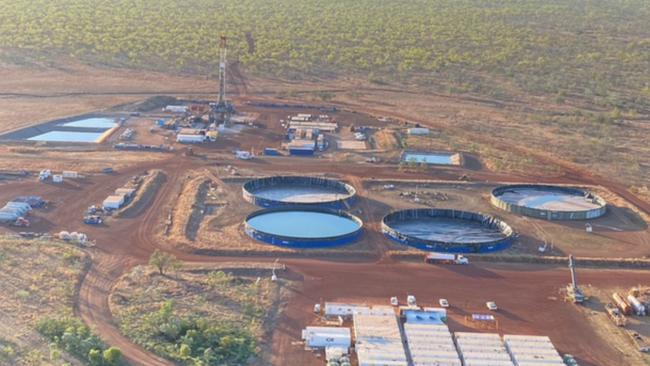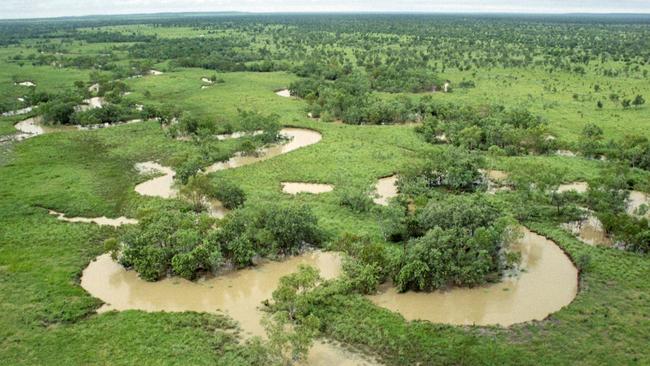Beetaloo Basin leaseholder Rallen Australia fights Santos fracking plan
One of the country’s largest landholders has accused Santos of misleading conduct as it battles attempts by fracking companies to develop the gas-rich Beetaloo Basin.

One of the country’s largest landholders has accused energy giant Santos of misleading and deceptive conduct as it battles attempts by fracking companies to develop the gas-rich Beetaloo Basin.
Rallen Australia, a vehicle of the wealthy Ravazzotti and Langenhoven families, has acquired over a million hectares of pastoral leases over the area, and last week quietly launched legal action in the Northern Territory courts against a proposed development.
Rallen and Amanzi Property, a related firm, together own at least six leases in the Territory. Rallen is also before the NT Civil and Administrative Tribunal trying to block junior explorer Tamboran Resources from starting work on Tanumbirini Station.
The Beetaloo Basin is tipped to become a world-class onshore gas province. Both the federal and NT governments have made it central to their energy policies.
Forecasts suggest it could generate employment opportunities for more than 6000 people and about $20bn worth of economic activity over the next 25 years.
The Rallen cases have raised eyebrows in the pastoral and resources sectors because the company appears to have little history of running outback cattle operations and bought most of the Beetaloo leases it holds after a fracking moratorium was lifted.
Rallen has employed lawyers, who appear to endorse activist anti-fracking and anti-gas causes publicly. One wrote in a letter, dated May 2020 and seen by The Australian, that “Rallen emphatically opposes unconventional gas activities on its pastoral leases”.

Rallen and Amanzi are controlled by Sydney-based Pierre Langenhoven and his wife Luciana, and Luciana’s South African father Giovanni Ravazzotti, who Forbes has listed as one of that nation’s richest men. The family’s main business is ceramic tiles.
Mr Langenhoven directed inquiries to his lawyers, who said in an email that Rallen had brought legal proceedings “to protect Tanumbirini Station and Rallen’s commercial interest, which is cattle farming”.
“Santos uses Rallen’s pastoral lease as though it owns it and, as it has transpired, flagrantly ignores its obligations to Rallen under the land access agreement,” a separate submission Rallen lodged with NT regulators says.
Rallen applied to the NT Supreme Court to injunct Santos from drilling and fracking new wells. But, at a hearing on Thursday, the company’s lawyers abandoned that request because Santos had “threatened” Rallen with pursuing compensation.
The lawyers told the court Rallen believed Santos failed to comply with its stakeholder engagement obligations and that Rallen had signed land access agreements “under false pretences”. They asked for an expedited trial.
Court documents suggest the thrust of Rallen’s case will be that Santos did not tell Rallen it had an opportunity to block Santos’s land access altogether.
Santos’s lawyers told the court they expected to meet an injunction application and would have offered to suspend some aspects of exploration temporarily. But they said they had instead been served with more than 5000 pages of legal documents and would need until 2022 to prepare a defence.

